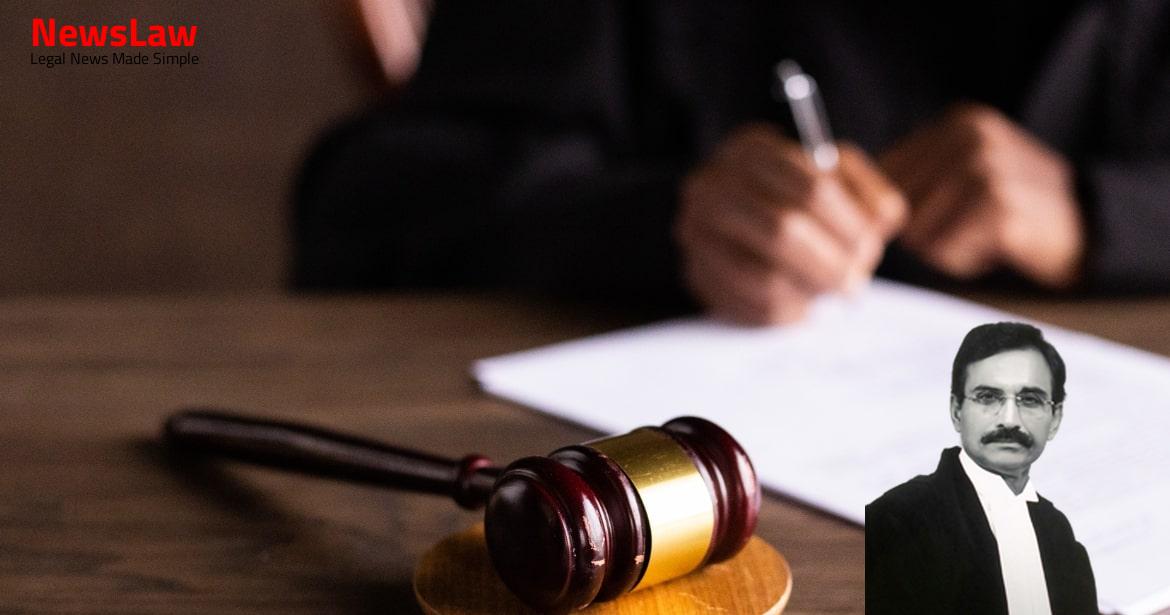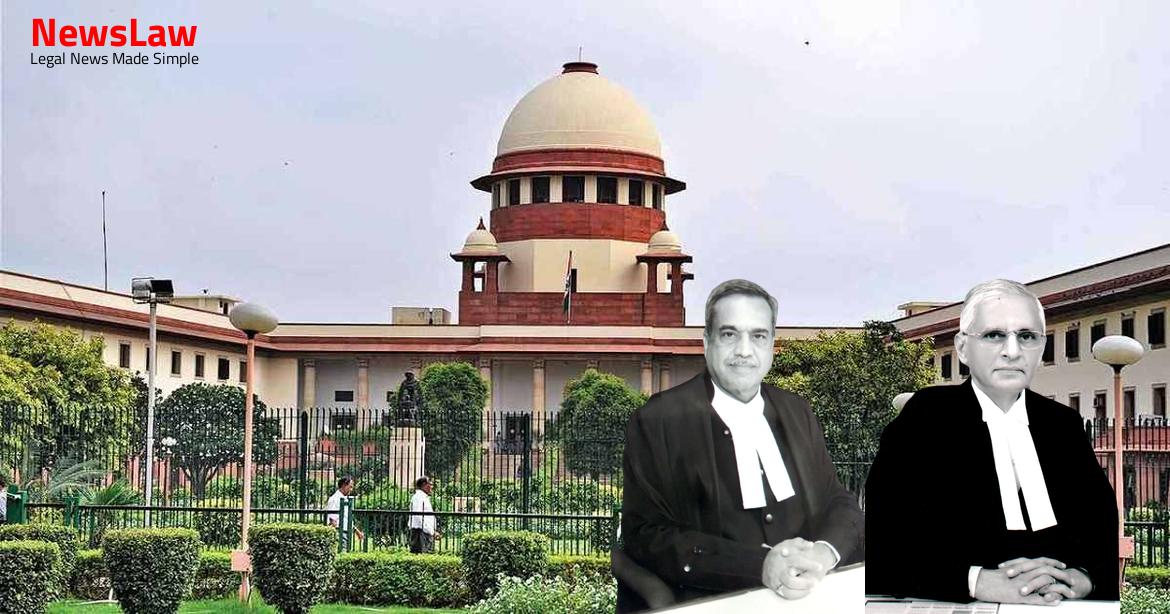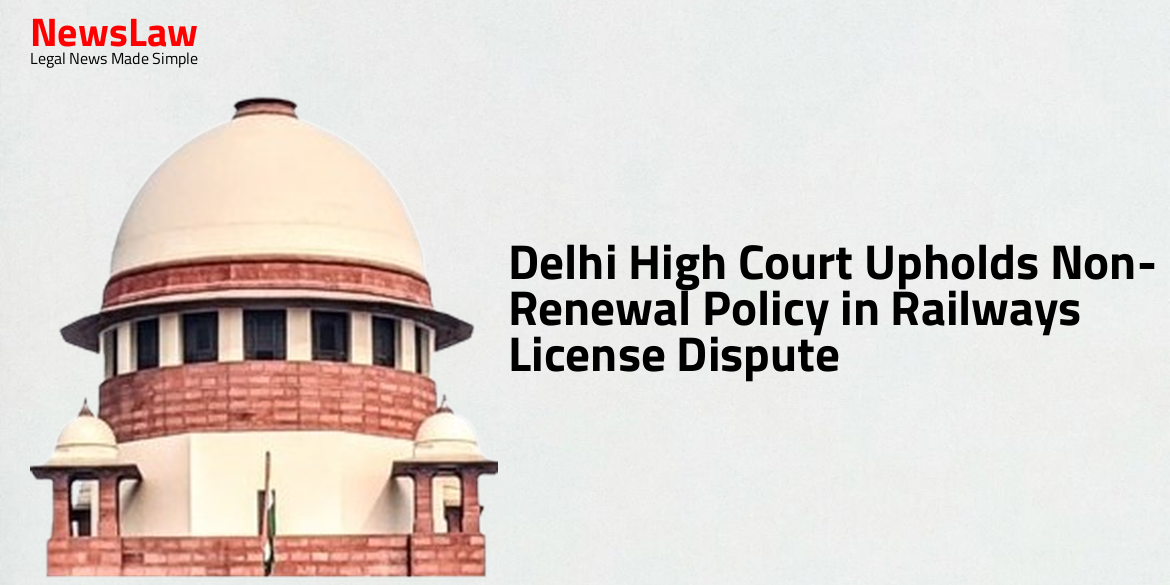Delve into the intricate legal analysis by the court regarding the extension of a Judicial Member’s term in the Central Administrative Tribunal. The decision-making process, compliance with rules, and interpretation of key legal provisions are scrutinized in this case, showcasing the nuances of administrative law.
Facts
- The respondent’s request for extension of the term as a Judicial Member, Central Administrative Tribunal was rejected by the Appointments Committee of the Cabinet on 11.10.2019.
- A proposal was sent by the Chairman, Central Administrative Tribunal to the Department of Personnel and Training on 21.12.2015 for the extension of the respondent’s term.
- A writ petition filed by the respondent before the High Court of Judicature at Allahabad, Lucknow Bench was allowed on 27.08.2021.
- Rule 9 deals with the extension of appointment term of a member of the Central Administrative Tribunal.
- The recommendation for extension of the respondent’s term was approved by the Hon’ble Chief Justice of India on 08.03.2016.
- The ACC requested the DoPT to re-examine the proposal for extension of the respondent’s term on 01.06.2016.
- The Selection Committee headed by a sitting Judge of the Court recommended the extension of the respondent’s term.
- DoPT submitted its remarks and the ACC returned the proposal for extension of the respondent’s term on 06.03.2017.
- Rules 9 and 10 were inserted in the 2011 Rules by way of an amendment dated 21 March 2014.
- The proposal from the Chairman, Central Administrative Tribunal along with the report from the Intelligence Bureau were presented to the Selection Committee on 19.02.2016.
- Selection Committee recommended extension of the respondent as Judicial Member of the Central Administrative Tribunal, approved by the Chief Justice of India.
- High Court allowed the writ petition filed by the respondent, setting aside certain orders and rejecting the proposal made by DoPT.
- High Court examined complaints against the respondent and found no adverse findings, criticizing DoPT for not considering this in their proposal.
- High Court directed ACC to decide on the recommendations of the Selection Committee and pass orders within 4 months.
- ACC denied extension of appointment to the respondent, leading to another writ petition by the respondent challenging this decision.
Also Read: Interest Compensation Dispute in Property Demolition Case
Arguments
- Mr. Jain argued that the High Court only directed the competent authority to pass an order in accordance with Rule 9(4) of the 2011 Rules.
- The competent authority referred the request of the respondent for extension of term to the Selection Committee based on inputs from DoPT.
- The High Court had already considered complaints against the respondent in its judgment and found nothing adverse to reject the extension request.
- The approval given did not amount to rejection of the request for extension.
- The judgment of the High Court set aside the proceedings of 06.03.2017.
- The appellants argued that an order in line with the Selection Committee’s recommendations approved by the Chief Justice of India was passed.
- Mr. Pradeep Kant stated that the recommendations of the Selection Committee for extending the respondent’s tenure must be complied with by the competent authority.
- The request from ACC to the Selection Committee related to carrying forward vacancies from 2016 to the next year, which was approved.
Also Read: Legal Analysis of Allegations of Illegal Mining
Analysis
- The Selection Committee recommended carrying forward the 2016 vacancies to 2017, which was approved by the Chief Justice of India.
- The ACC did not make a decision contrary to the recommendation made by the Selection Committee.
- The Selection Committee consciously decided not to recommend the extension of the respondent’s tenure.
- The High Court was incorrect in holding that the recommendation to carry forward vacancies to 2017 was set aside.
- Additional material was presented later for a review of the decision by the Competent Authority.
Also Read: Governor’s Discretion in Sentence Remission: Legal Analysis
Decision
- The respondent was appointed as a Judicial Member on 30.05.2011 for a period of five years or until he reaches the age of 65, whichever is earlier.
- He assumed charge on 19.05.2011 and was approved by the competent authority.
- The order passed by the ACC on 11.10.2019 was in compliance with the direction from the High Court issued on 08.05.2019.
- The appeal was allowed and leave was granted.
- The impugned judgment of the High Court was set aside.
Case Title: UNION OF INDIA Vs. NAVNEET KUMAR (2022 INSC 521)
Case Number: C.A. No.-003656-003656 / 2022



